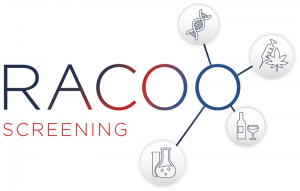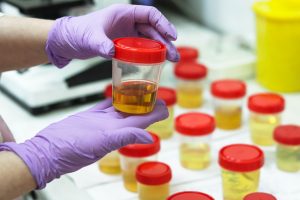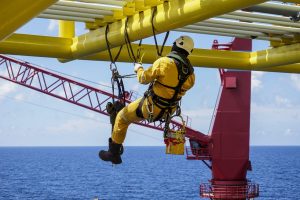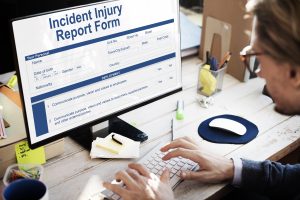Fossil fuels drug and alcohol testing
Ensure the safety and compliance of your energy sector workplace with tailored oil & gas drug and alcohol testing.
60%
of all poor performances in the workplace are linked to substance abuse [1], often due to causing a lack of concentration and coordination [2].
With 99% of the UK’s oil and gas production coming from remote work on hazardous offshore locations such as oil rigs, gas pipelines and drilling rigs, substance abuse in the energy sector can lead to significant risks in these safety-critical roles, including:
- Decreased safety: 40% of all industrial accidents in the workplace are caused by substance abuse. Offshore workers who use drugs or alcohol are known to cause accidents that lead to horrific consequences, including collisions and slips and falls [3].
- Increased absenteeism: “Companies are likely to see increased illness and sickness absence, as well as a significant reduction in productivity [4]”, which can result in lost work time, decreased productivity, and increased healthcare costs.
- Increased costs: Drug abuse costs UK businesses up to £100 billion per year [1]. You may face compensation claims if an employee causes offshore drilling rig accidents, including severe incidents like blowouts or structural collapses, due to drug or alcohol misuse.
Whether you’re an HR manager in the oil and gas industry or overseeing broader energy sector operations, leveraging Racoo’s expertise in workplace drug and alcohol testing helps you identify and mitigate risks promptly.
Implement energy sector drug and alcohol testing to foster a safe and compliant work environment
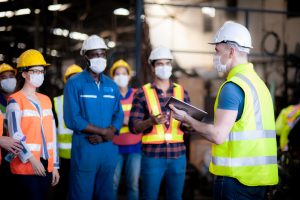
Promote a safe working environment
Regular drug and alcohol tests can deter employees from substance misuse, potentially reducing workplace incidents. Such measures uphold the safety and well-being of all staff.

Maintain an efficient workplace
Screening ensures that employees in safety-critical roles are free from the influence of drugs or alcohol, ensuring smooth operations and upholding the reputation of oil and gas companies.
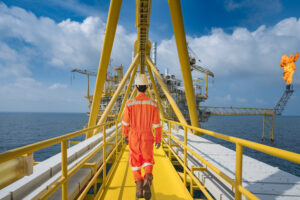
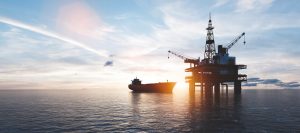
Uphold best practices
Workers in the offshore oil and gas industry in the UK are required to undergo the OGUK medical examination, of which drug and alcohol testing is compulsory for medical workers [5].
Racoo’s fully managed drug and alcohol testing service can be adapted to OGUK standards and your company’s policies, ensuring safety without the added burden of managing the testing process in-house.
How can fossil fuel drug and alcohol testing benefit your energy sector company?
Within the The International Convention on Standards of Training, Certification, and Watchkeeping for Seafarers (STCW), international maritime law recommends that seafarers are screened for drug and alcohol abuse using both announced and unannounced testing [REF6].
Furthermore, the OGUK [REF5] and The Maritime and Coastguard Agency (MCA) [REF7] emphasises the importance of drug and alcohol testing.
Since maritime law applies to offshore oil and gas workers, your company should likely have a substance screening programme in place for any employee working at sea.
Workplace drug testing involves checking employees for the presence of drugs or alcohol. Tests can be based on specific incidents, suspicions, or as part of a broader preventive programme.
Racoo Screening’s tests, such as the urine test, can detect a range of substances, from illegal drugs to prescription medications taken without a valid prescription.
-
Fully managed for your convenience
-
Legal and ethical testing to ensure a safe working environment in the oil and gas industry
-
Tailored to the unique needs of the energy sector
Why Racoo?
FAQs
About drug testing in the energy sector
If your energy company is one of the 99% of oil and gas companies that has offshore workers, then you’ll need to drug screen your employees. This is because employees working on offshore rigs fall under international maritime law which requires drug and alcohol screening. The screening must be a mix of announced and unannounced tests [6].
If your company has no offshore workers, then drug and alcohol screening isn’t required by law but is still recommended due to the potential safety risks of employees under the influence of illicit substances.
Offshore Technology states that the unique nature of offshore work — loud noise, extremes in temperatures and ergonomic hazards — coupled with long stretches away from family and friends makes offshore employees particularly vulnerable to substance abuse [4].
Workers face challenging conditions and long hours. Ensuring their clarity of mind is crucial for safety, making a zero-tolerance approach to drugs and alcohol essential.
Substance misuse offshore appears to be as common as onshore. Recent tests show numbers consistent with general population statistics [4].
The urine test is the most prevalent method used in the energy sector due to its accuracy and affordability. Racoo offers both urine and saliva sample testing.
In accordance with OGUK recommendations [REF5], Racoo offers urine screening. This allows your company to test for a range of substances, from illegal drugs like cocaine and cannabis to prescription medications taken without a valid prescription.
Yes. Oil and gas companies should conduct both random and regular screening for their offshore employees in accordance with international maritime law and OGUK recommendations. Companies in the energy sector can implement random testing, especially in safety-critical roles, such as medics, to ensure health and safety at work and efficiency of operations.
Drug and alcohol screening could promote a safer workplace, reduce potential liabilities, and uphold your company’s reputation, ensuring operational efficiency and staff well-being.
For offshore workers, regular screenings, such as pre-employment, post-incident, and random drug testing, are required under international maritime law to maintain a consistent safety standard. Depending on the size and selection method, your company may choose to screen once a month or on a more random basis.
With over 20 years of experience in the field, at Racoo we’ve honed our alcohol and drug testing procedures to ensure precision and reliability. We partner with laboratory facilities accredited by The United Kingdom Accreditation Service and The British Standards Institution; they comply with the International Standard for laboratories (ISO 17025) and OGUK. These accreditations ensure that the tests meet rigorous standards.
Positive results require a confidential and supportive approach, offering guidance, potential rehabilitation, and ensuring a safe working environment. See our workplace guidance for more information on the steps you can take.
All screenings will be conducted confidentially, with results shared only with necessary personnel, safeguarding employees’ privacy rights.
references
[1] www.readersdigest.co.uk The Hidden Cost of Substance Abuse in the UK Workplace
[2] www.alcoholrehabguide.org Alcoholism In The Workplace
[3] www.attorneystevelee.com Maritime vessel accidents caused by alcohol and drug use
[4] www.offshore-technology.com Managing substance abuse offshore
[5] www.oeuk.org.uk Managing drug and alcohol misuse at work
[6] www.ocimf.org Guidelines for the control of drugs and alcohol onboard ship
[7] www.gov.uk Guidance: Seafarers medical certification guidance
